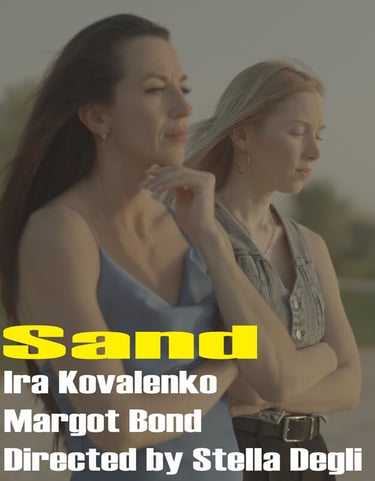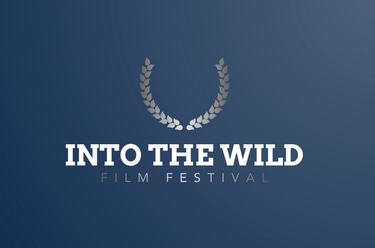Interview with Margot Bond
In the shimmering streets of Dubai, two women reunite after a decade apart. Polina, now a self-made entrepreneur, and Kim, a mother of two in a seemingly perfect marriage, reconnect over laughter, memories, and a drive through the desert city. But beneath the surface, hidden truths simmer. As the sun sets by the river, a heartfelt conversation exposes the cracks in their lives—revealing silent sacrifices, broken dreams, and the cost of “having it all.” In a world that expects women to be everything for everyone, SAND is a raw, intimate portrayal of female friendship, emotional survival, and the unspoken grief behind a smile. Set in Dubai, spoken in English, this film is an ode to the quiet strength of women—resilient, wounded, and still standing.
7/16/20252 min read


First of all, we would like you to introduce yourself so that we can introduce you to our audience. Who are you? How long have you been making films?
My name is Margot Bond. I'm an actress, writer, and producer based between Dubai and Europe. I've been acting for many years, but filmmaking entered my life more recently—when I felt a deep urge to tell stories that are personal, raw, and emotionally real.
And now we talk about your project. What will the audience find?
Sand is a poetic and intimate story about two friends reconnecting in the middle of the desert after years spent on opposite sides of the world. It's not just about a conversation—it's about everything left unsaid over the years. Built on minimal dialogue and strong visual language, the film explores silence, guilt, love, and the quiet healing that happens when we're truly present with each other.
Were you inspired by any other movie to make the film?
Not really. Visually, I was inspired by the energy and beauty of Dubai, where I live now. Emotionally, Sand is rooted in real experiences—moments of pain, reconnection, and vulnerability.
What does cinema mean to you?
Cinema is the most powerful emotional language I know. It allows us to feel things we often avoid in real life—and to see ourselves and others with more compassion. It's both a mirror and a kind of medicine.
What was the first movie you remember seeing?
Titanic. I was completely mesmerized by the scale, the emotion, the music... I think I cried for hours.
Which movie is the best for you?
That's a hard one—but I'd say Lost in Translation and Killers of the Flower Moon. They stay with you. The cinematography in both is unforgettable—there's a certain magic in how they observe people and space.
What do you think a movie must have as an essential ingredient?
Authenticity. Whether it's a drama or a comedy, I want to feel that it comes from a true place—not a formula. The soul has to be there.
Your favorite actor or actress?
Cate Blanchett, Meryl Streep, Al Pacino, Leonardo DiCaprio.
What qualities do you see in that actor/actress to have such consideration? What do you like most about them?
They are fearless, emotionally intelligent, and incredibly versatile. They disappear into their characters while still holding something magnetic and deeply human. I love that balance.
A good movie has to...
...leave you with a feeling you can't quite explain—but can't forget either. It should change you a little. Heal something. Open something.
What genre of cinema do you prefer?
I love intimate dramas with emotional depth and artistic vision. But I also enjoy subtle, dark comedies.
How do you define yourself professionally?
A storyteller. Whether I'm in front of the camera or behind it, I'm always searching for truth.
What movie have you seen most often?
Titanic. I've probably seen it over 30 times. It's like poetry in motion.
What topics are the most inspiring for you?
Human connection, emotional wounds, reconciliation, female identity, and silence—especially everything that goes unsaid in families.
